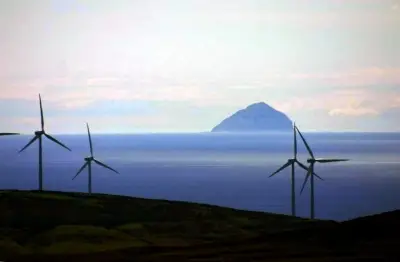Following a recent report which suggested that half of Scotland’s energy requirements can be met by renewable energy by 2030 environmental groups have encouraged the Scottish Government to take further steps to achieve this goal.
The report by Ricardo Energy was commissioned by Scottish branches of WWF, Friends of the Earth and the RSPB to look at the most cost effective way for Scotland to meet its energy targets and found in order to do so half of Scotland’s energy will need to come from renewable energy sources by the end of the next decade.
It suggests that this ‘low carbon future’ is achievable for Scotland and sets out a vision for achieving this. Within the next 15 years 40% of Scotland’s homes would need to be heated entirely from renewable sources and energy use in homes would have to be reduced by 30% through insulation programs. The report added that a third of cars and half of buses should run on electricity generated from renewable sources.
This is encouraging for the Scottish Government which has already achieved its target to reduce carbon emissions by at least 42% by 2020, but is falling short of its goal to generate 100% of Scotland’s electricity from renewable sources by 2020.
The news is also reassuring for the renewable energy sector and environmental groups but it illustrates the continued problems with the North Sea oil and gas industry which has long been vital to the success of the Scottish economy and supports over 300,000 jobs.
Expensive oil production, coupled with lower demand, has made it almost impossible for North Sea oil to compete in the current price environment and if the nation continues to move towards renewable energy then the future looks increasingly challenging for the North Sea.
Tax revenue that averaged £7.4 billion over the last 10 years has been cut to almost zero in 2015/16 in an attempt to protect the industry. Despite this there have been continued job lossesand the sharp increase in corporate insolvencies in Scotland over the last quarter as a direct result of the weak economy. Scottish GDP figures show that Scotland is lagging behind the rest of the UK largely due to problems in oil and gas and points to how reliant Scotland’s economy is on the sector.
Although the commitment to tackling climate change is undoubtedly a positive it may not necessarily prove to be a good thing for the Scottish economy in the short term. The Scottish Government will have to look at alternative methods of raising revenue to help fill the void left by North Sea oil.




